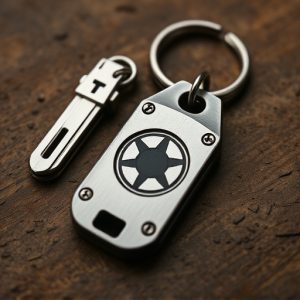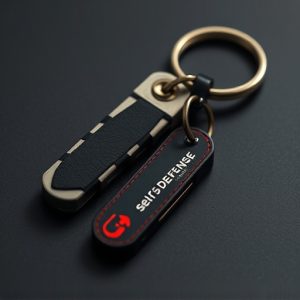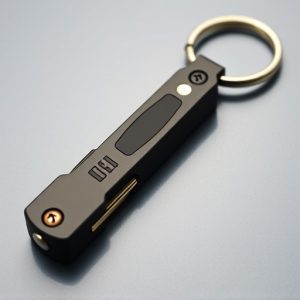Legal Self-Defense Keychain Regulations: A Global Checkup
Navigating Legal Self Defense Keychain Regulations globally is crucial for personal safety and avoid…….
Navigating Legal Self Defense Keychain Regulations globally is crucial for personal safety and avoiding legal trouble. Each region has unique laws based on public safety, cultural norms, and device capabilities, ranging from non-lethal to broader self-defense options. Before purchasing, individuals must research local regulations, prioritizing functionality (stun guns, pepper spray, alarms, LEDs) over aesthetics while ensuring GPS tracking legality and manufacturer certifications for reliability. Understanding these Legal Self Defense Keychain Regulations is essential to comply with laws, avoid issues, and guarantee personal safety.
In today’s world, personal safety is paramount. For those seeking an innovative yet legal self-defense solution, keychains equipped with safety devices have emerged as a popular choice. However, navigating the legal landscape surrounding these tools can be complex and varies globally. This article delves into “Legal Self Defense Keychain Regulations,” offering insights from a global perspective and guiding you through essential aspects to consider before acquiring such a device. From understanding regulatory frameworks to identifying key features, we equip you with knowledge to make an informed decision.
- Understanding Legal Self-Defense Keychain Regulations: A Global Perspective
- Key Components and Features to Look for in a Legal Keychain Device
- Navigating Legalities: What You Need to Know Before Purchasing a Self-Defense Keychain
Understanding Legal Self-Defense Keychain Regulations: A Global Perspective
In the global landscape, understanding legal self-defense keychain regulations is essential for anyone considering carrying such a device for personal safety. Each country and region has its own set of laws and guidelines governing self-defense tools, including keychains designed with protective features. These regulations vary widely based on factors like public safety concerns, cultural norms, and the specific capabilities of the devices. For instance, some jurisdictions might permit only non-lethal self-defense keychains while others allow a broader range of options.
Knowing these legal constraints is crucial for responsible citizens aiming to protect themselves. Carrying a keychain with intentions of defense must align with local laws to avoid legal repercussions. Therefore, individuals should research and understand the specific regulations in their area before purchasing or using such devices. This proactive approach ensures not only personal safety but also adherence to the law, fostering a harmonious society where self-defense rights are balanced with public security.
Key Components and Features to Look for in a Legal Keychain Device
When considering a legal keychain safety device, it’s crucial to look beyond its sleek design and focus on key components and features that align with relevant regulations. Firstly, ensure the device complies with local self-defense laws by checking for approved stun gun or pepper spray capabilities. These weapons must meet power output and safety standards to be classified as legal defensive tools.
Additionally, look for integrated alarm systems and LED lights, which can serve as deterrents during dangerous encounters. Some models feature GPS tracking, allowing users to locate their keys in case of loss, but always verify if this functionality is legally permitted without raising privacy concerns. Always check the manufacturer’s certifications and user reviews to confirm the device’s reliability and adherence to legal self-defense keychain regulations.
Navigating Legalities: What You Need to Know Before Purchasing a Self-Defense Keychain
Before purchasing a self-defense keychain, it’s crucial to understand the legalities surrounding such devices. The regulations for legal self-defense keychains vary significantly from one jurisdiction to another. What may be permitted in one country or state could be strictly regulated or outright banned in another. This is primarily due to concerns over misuse and potential as a weapon. Always check local laws and consult with law enforcement or legal professionals to confirm the specific regulations in your area.
Navigating these legalities involves understanding not just what constitutes a self-defense keychain but also the restrictions on its use. Some regions may permit only certain types of self-defense devices, while others might have limits on the level of force they can employ. Additionally, there could be requirements for registration or licensing, as well as age restrictions for ownership and carry. Being well-informed ensures you purchase a device that complies with legal Self Defense Keychain Regulations, thereby avoiding potential legal issues and ensuring your personal safety.
When considering a legal self-defense keychain, understanding global regulations and selecting a device with key components that meet these requirements is essential. Before purchasing, it’s crucial to navigate the legalities involved, ensuring your chosen option provides both protection and peace of mind without crossing any borders or breaking any laws. By adhering to these guidelines, you can make an informed decision, contributing to personal safety in today’s world.


